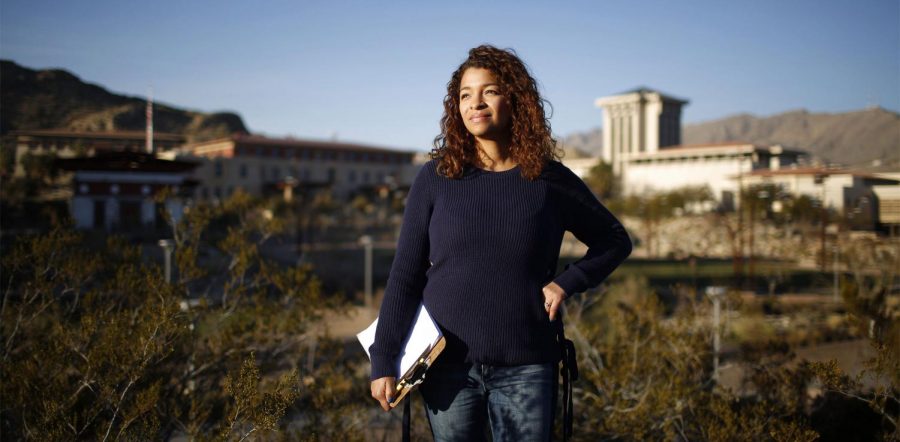At the upcoming 62nd session of the Commission on the Status of Women at the United Nations in New York from March 10-17, women from every corner of the world will gather to discuss challenges and opportunities in achieving gender equality and the empowerment of rural women and girls.
This year, Julissa Corona, a UTEP master of social work student, is one of 10 students who were selected from across the nation to participate in the CSW as a delegate for the Women’s International League for Peace and Freedom.
“I’m excited to learn about policies and how to change them and I’m excited to participate in advocacy for women’s rights,” Corona said.
The WILPF is an organization that works to achieve racial and economic justice, world disarmament and other rights for women. Corona will gain temporary delegate status, where she will have the opportunity to observe how the United Nations works to address certain issues that require multilateral engagement and coordinated action.
She will also attend official and non-government organization sessions and contribute to the official documentation of both official and NGO meetings.
Corona earned her bachelor’s of science in psychology degree from Methodist University in Fayetteville, North Carolina, in 2014. Soon after, she started working in clinical psychology, where she worked with an Assertive Community Treatment (ACT) team. The goal of ACT is to help people stay out of the hospital and to develop skills for living in the community, so that their mental illness is not the driving force in their lives.
During this time, she practiced psychological rehabilitation, working with clients who were experiencing schizophrenia and psychotic symptoms. Corona became especially interested in the social aspect of the job, understanding the issues that impact individuals, their response to the issue and how to fix the issue.
“The (social worker’s) work was more broad and focused on human behavior. I liked that,” Corona said.
She was excited to learn that she was chosen as a delegate for the CSW, which is a governmental body that focuses on gender equality and the advancement of women and draws representatives of governments to address the problems facing women around the world.
The application process for this unequaled opportunity is highly competitive and focused on the applicant’s professionalism, academic success and community outreach.
“I know it’s going to change who I am as a professional, and I’m hoping transfer what I learn to give back to the community,” she said.
When Corona returns to UTEP, she will create an advocacy project that will encourage equality and hopefully generate a better understanding of the processes of changing unbalanced policies.
“Women have had rights for decades, but there’s still a lot of hard work to be done,” she said.
Corona says the possibility of being able to change policies and how those policies will affect women is what motivates and inspires her to continue her work as an advocate for women’s rights. She wants to bring back whatever she learns to the community and see how things can change locally.
“I’m hoping to bring back what I learn to the El Paso community,” Corona said. “Even if it’s in a small way, whatever it may be, I just want to give back rather than just go and experience this event and that’s it.”
A native of La Chorrera, Panama, Corona will graduate from UTEP in May 2018. Last year, she was one of four UTEP students invited to present at the 14th Feminist Conference of Latin America and the Caribbean (EFLAC) in Montevideo, Uruguay. She is also the co-host of the UTEP’s social work department’s bilingual radio talk show called “Health and the Borderland Culture/Salud y Cultura Fronteriza.”
On the recent #MeToo and Times Up movements, Corona said it’s inspiring and valuable to see how they’re affecting other movements, such as the recent student marches in Florida after the school shooting at Marjory Stoneman Douglas High School. She said the collaboration seen between students and #MeToo advocates is the best representation of the good that society can be.
“I think it’s powerful when oppressed groups speak up and it’s really powerful when we support each other,” she said.






